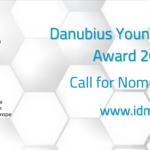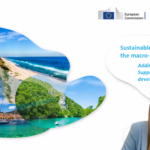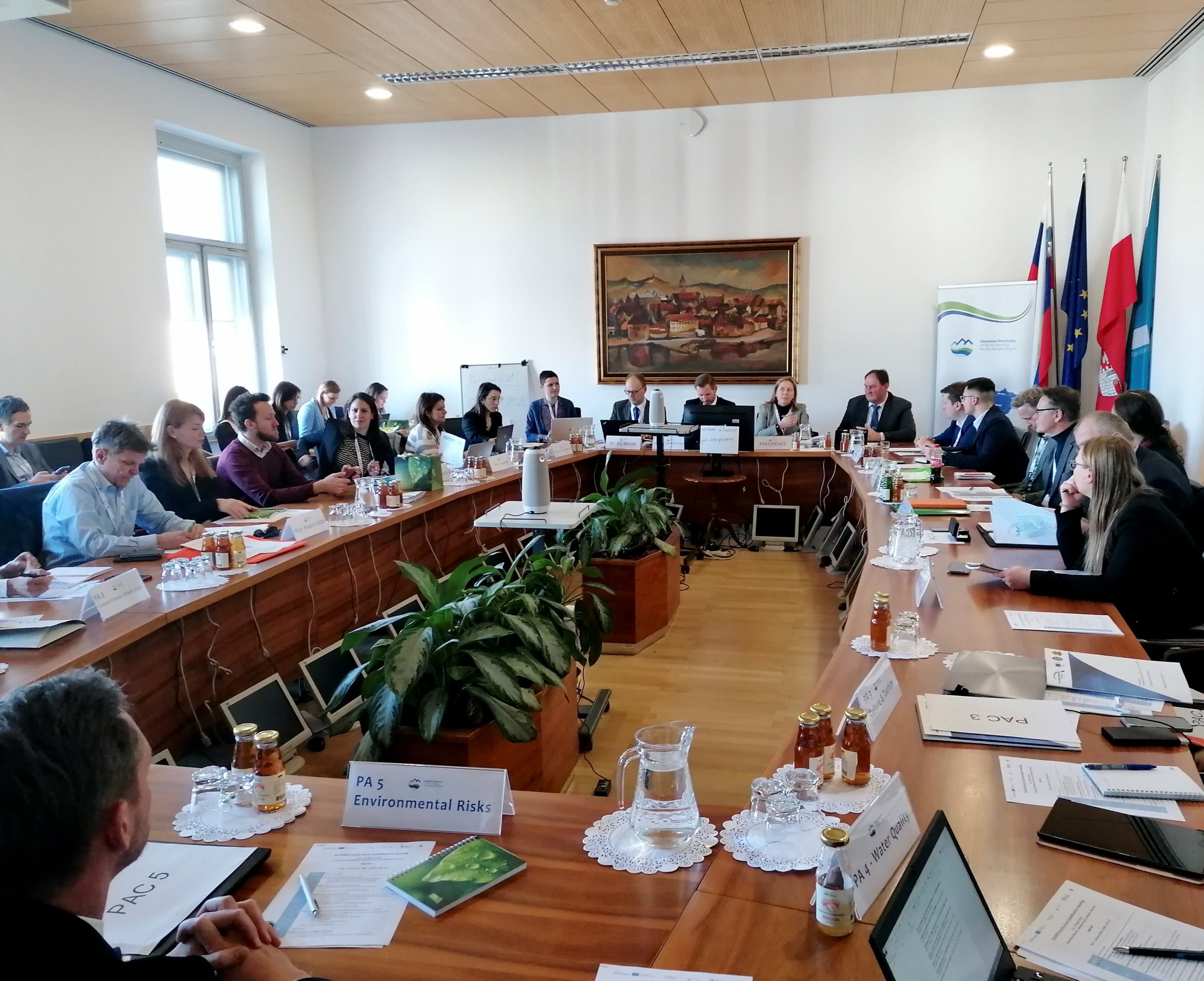On 16 and 17 March 2023, Priority Area Coordinators (PACs) of the EU Strategy for the Danube Region (EUSDR) met in Maribor. All 12 teams of PACs from 14 countries of the region were present in the meeting, representatives of the Danube Region Programme, the European Commission, the Danube Youth Council (DYC) and the secretariat of the EUSDR – the Danube Strategy Point. The event was organised by Slovenian EUSDR Presidency with the support of the Danube Strategy Point and the University of Maribor.
At the meeting, the topics discussed were the 2022 Commission’s report on the implementation of EU macro-regional strategies and the presentation by the Commission of the current activities under the European Year of Skills 2023. The focus of the meeting was the discussion on the upcoming activities in the 12 thematic areas of the EUSDR on the potential cooperation with the Slovenian Presidency priorities, on support to Ukraine and on finding the synergies between thematic areas.
One of the important topics was the youth involvement in the EUSDR, as at the end of 2022, the Danube Youth Council* was formally established. There was a discussion about the current engagement of DYC members in the work of the Priority Areas with the presentation of best practices. Slovenian EUSDR Presidency informed about the activities connected to youth until the end of the year. The most important event will be the POPRI Start-up Challenge, a capacity-building method developed for Danube Youth Council members focusing on discussing the importance of young talents and developing their potential in their own country.
The participants also visited the National Supercomputing Centre HPC RIVR (part of EURO HPC Joint Initiative) at the Research Institute of the University of Maribor (IZUM). Vega is the first supercomputer shared by the member states of the European Union, supporting European researchers and users from the public and industry sector all over Europe. Vega drives innovation and helps Europe compete globally in strategic domains, including artificial intelligence, high-performance data analytics (HPDA), personalised medicine, bioengineering, fight against climate change, and drug and material design.
The PAC meeting continued on Friday, with a follow-up of the informal NC-PAC meeting in December 2022 at Brdo pri Kranju and a discussion on possible steps towards better support for stakeholder involvement in the work of Priority Areas. Discussion with PACs was followed by a DSP report on the continuation of their support to PACs following 2023, status of embedding, Danube Strategy Flagship projects and future activities. The meeting concluded with the presentation of the Seed Money Facility under the new Danube Region Programme, followed by a discussion of its implementation with PACs.
***
The Danube Region Strategy addresses a wide range of issues divided among 4 pillars and 12 Priority Areas. Each Priority Area is managed by two countries as Priority Area Coordinators (PACs). The PACs, together with the Steering Groups, ensure the implementation of the EUSDR. Their work is trans-national, inter-sectorial and inter-institutional.
* Danube Youth Council is one of the impact stories of the region that the Slovenian Presidency of the EUSDR will present during its communication activities. Overall, nine impact stories will be presented to the public, highlighting the results of successful cooperation in the Danube region. The impact stories will be connected with the thematic priorities of the Slovenian Presidency, aiming to bring the idea of macro-regions closer to the public through the presentation of tangible results.





